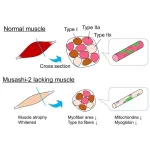(Press-News.org) Milan, Italy: Babies and young children with more mature communities of bacteria present in their gut are less likely to develop allergy-related wheezing or asthma, according to research presented at the European Respiratory Society International Congress in Milan, Italy [1].
These communities of bacteria, known as microbiota, develop in the human body during the early years of life and are involved in processes that are helpful to the body, such as synthesising vitamins and boosting the immune system, or occasionally unhelpful, such as the role they play in inflammatory bowel disease and stomach ulcers. Babies already have some microbiota in their guts from their mothers when they are born. The diversity of microbiota increases and matures as they grow older and are exposed to more different types from sources such as other children, animals, and different foods.
Dr Yuan Gao, a research fellow at Deakin University, Geelong, Australia, who presented the study, said: “Our studies on the Barwon Infant Study showed that a more mature infant gut microbiota at one year of age was associated with a lower chance of developing food allergies and asthma in childhood. This appeared to be driven by the overall composition of the gut microbiota rather than specific bacteria. We then hypothesised that advanced maturation of the infant gut microbiota in early life is associated with decreased risk of allergy-related wheeze in later childhood.”
The Barwon Infant Study (BIS), which has been running in Australia since 2010, recruited 1074 babies between 2010 and 2013, and researchers have been following the babies as they grow. For this current study, Dr Gao and her colleagues looked at the bacteria present in faecal samples collected from the BIS babies one month after birth, six months and one year. At the one-year and four-year postnatal reviews, the BIS investigators asked the parents to report on whether their children had developed allergy-related wheeze or asthma in the previous 12 months. They also did skin-prick tests to see if the children had allergic reactions to any of ten foods and any airborne substances that can trigger an allergic response, such as rye grass or dust.
In a randomly selected sub-group of 323 children, the BIS team used a DNA sequencing technique to identify and characterise the gut microbiota. They calculated ‘microbiota-by-age z-score’ (MAZs), which is a mathematical estimate of the maturity of the children’s gut microbiota.
“We found that if babies had more mature gut microbiota when they were one year old, they were less likely to have an allergy-related wheeze at one and four years old,” said Dr Gao. “If MAZ increased within a certain range, known as standard deviation, it halved the risk of allergy-related wheeze at both these ages. In other words, the more mature the gut microbiota, the less likely were the children to have allergy-related wheeze. We did not find a similar association with MAZ scores at one or six months.”
The mechanisms by which mature gut microbiota contribute to preventing allergy-related disease is not completely understood. “Given the complex origins and development of both gut microbiota and the infant immune system, it is likely that the protective effect of a healthy gut microbiota occurs as a result of communities of bacteria acting in multiple different ways, rather than via one particular mechanism,” said Dr Gao.
“We hope that by understanding how the gut microbiota improves the immune system, new ways of preventing allergy-related disease such as asthma can be developed. For instance, it might be possible to suggest ways of advancing the maturation of gut microbiota in early life, which would lead to fewer children developing asthma and other allergy-related diseases in the future. With so little known about why babies develop allergies and asthma, more research is needed.”
The researchers are planning to recruit 2000 children from Australia and New Zealand to a new clinical trial, called ARROW, to see whether giving young children a mixture of dead bacteria, taken orally, can protect them from wheezing illnesses or asthma by boosting a healthy immune response to viral infections. Viruses are the commonest causes of childhood illnesses and can lead to chest infections and wheezing.
“ARROW has the potential to dramatically improve the health of children with recurrent wheeze and asthma,” said Dr Gao.
Strengths of the study include its design, which allowed researchers to analyse the development of gut microbiota as the children grew older, and also the fact that the BIS children were drawn from the general population. Limitations include the fact that the DNA methods used to characterise the gut microbiota cannot provide insights into the function of the bacteria.
Dr Erol Gaillard, Secretary of the European Respiratory Society group on paediatric allergy and asthma, and associate professor in child health and honorary consultant in paediatric respiratory medicine at the University of Leicester and Leicester Royal Infirmary, Leicester, UK, was not involved with the research. He commented: “Allergy-related illnesses such as asthma and eczema are some of the commonest conditions affecting children, and the incidences are rising in many parts of the world. We are not sure why this happens, but theories include smaller families where children are less exposed to several other siblings and the germs they inevitably carry, less diverse food eaten at an early age, and less exposure to farm animals in some communities.
“Dr Gao and colleagues report that more mature gut microbiota in early infancy may protect against the development of wheezing illness and allergies. This fits with some of these other theories because exposure to a variety of bacteria from an early age is very likely if babies and children are regularly mixing with other children and animals and are exposed to a larger variety of foods. If we can find ways to boost the maturity of gut microbiota, this could have a significant effect on the incidence of allergies, and so it will be interesting to see the results of the ARROW study.”
(ends)
[1] Abstract no: OA1434 “Late breaking abstract – Gut microbiota maturity in infancy and atopic wheeze in childhood”, by Yuan Gao et al; Presented in session “Latest research on paediatric asthma” at 14.15-15.30 CEST on Sunday 10 September 2023. https://k4.ersnet.org/prod/v2/Front/Program/Session?e=379&session=16582
END
Healthy guts containing diverse and mature bacteria are linked to less allergy-related wheezing and asthma in early childhood
2023-09-10
ELSE PRESS RELEASES FROM THIS DATE:
Aldosterone synthase inhibition with lorundrostat for uncontrolled hypertension
2023-09-10
About The Study: Among individuals with uncontrolled hypertension in this randomized clinical trial that included 200 participants, use of lorundrostat was effective at lowering blood pressure compared with placebo, which will require further confirmatory studies.
Authors: Steven E. Nissen, M.D., of the Cleveland Clinic Foundation, is the corresponding author.
To access the embargoed study: Visit our For The Media website at this link https://media.jamanetwork.com/
(doi:10.1001/jama.2023.16029)
Editor’s Note: Please see the article for additional ...
Benmelstobart plus anlotinib and chemotherapy shows benefit for patients with extensive-stage small-cell lung cancer
2023-09-10
[Singapore -- 10:35 a.m. SGT--September 10, 2023] - The combination of benmelstobart, anlotinib, and chemotherapy demonstrated significant benefits compared to placebo and chemotherapy in terms of median progression-free survival and overall survival for patients with extensive-stage small-cell lung cancer.
The research was presented today at the International Association for the Study of Lung Cancer 2023 World Conference on Lung Cancer in Singapore.
Extensive-stage small-cell lung cancer is a challenging malignancy to treat, ...
Exhaled breath analysis shows promise in detecting malignant pleural mesothelioma
2023-09-10
[Singapore -- 10:35 a.m. SGT--September 10, 2023] -- Identifying and analyzing volatile organic compounds in exhaled breath of patients with malignant pleural mesothelioma showed promise as a screening method for MPM, according to research presented today at the International Association for the Study of Lung Cancer (IASLC) 2023 World Conference on Lung Cancer in Singapore.
Malignant pleural mesothelioma (MPM) is a challenging disease with limited treatment options and a poor prognosis. To improve ...
Six-year follow-up data on CheckMate 227 survival and quality of life benefits unveiled for patients with metastatic NSCLC and nivolumab + ipilimumab treatment
2023-09-10
[Singapore -- 10:35 a.m. SGT--September 10, 2023) -- The International Association for the Study of Lung Cancer (IASLC) World Conference on Lung Cancer 2023 in Singapore is set to witness a monumental breakthrough in the field of metastatic non-small cell lung cancer (NSCLC) treatment. Research findings from the CheckMate 227 trial will be presented, shedding light on the extraordinary six-year survival and quality of life benefits associated with first-line nivolumab + ipilimumab therapy.
CheckMate 227 Part 1 showed that a combination ...
KRYSTAL-1 trial finds that adagrasib demonstrates durable clinical activity in patients with KRAS-G12C mutations
2023-09-10
[Singapore -- 10:35 a.m. SGT--September 10, 2023] — The oral, selective KRAS G12C inhibitor The oral, selective KRAS G12C inhibitor KRAS-G12C inhibitor adagrasib demonstrated durable clinical activity, with a median overall survival of 14.1 months and approximately one in three patients alive at two years, according to research presented today at the International Association for the Study of Lung Cancer (IASLC) 2023 World Conference on Lung Cancer in Singapore.
KRAS-G12C mutations occur in approximately 14% of patients with NSCLC. The KRYSTAL-1 study, a multi-cohort Phase 1/2 trial, evaluated adagrasib as a monotherapy or in combination for patients with KRAS-G12C-mutated ...
Stigmatization of smoking-related diseases is a barrier to care and the problem may be on the rise
2023-09-10
[Singapore -- 10:35 a.m. SGT--September 10, 2023) –The stigma that patients face when diagnosed with lung cancer is associated with poorer psychosocial outcomes, including distress and isolation, delayed help-seeking, and concerns about the quality of care, according to research presented today at the International Association for the Study of Lung Cancer (IASLC) 2023 World Conference on Lung Cancer in Singapore.
The study, conducted by a team of researchers led by Nathan Harrison, a behavioral scientist and PhD student ...
Color of phlegm can predict outcomes for patients with the lung disease, bronchiectasis
2023-09-10
Milan, Italy: The colour of the phlegm from patients with the lung disease bronchiectasis can indicate the degree of inflammation in their lungs and predict their future outcomes, according to new research presented at the European Respiratory Society International Congress in Milan, Italy [1].
The study of nearly 20,000 patients from 31 countries is the first time that the colour of phlegm (also known as sputum) has been shown to provide clinically relevant information that reflects prognoses and, therefore, can aid decisions about ...
Scientists set sights on protein that controls skeletal muscle composition
2023-09-09
Tokyo, Japan – Researchers from Tokyo Metropolitan University have shown that the protein Musashi-2 (Msi2) plays a key role in the regulation of mass and metabolic processes in skeletal muscle. They studied mice with the Msi2 gene knocked out and found reduced muscle mass due to fewer type 2a muscle fibers. Myoglobin and mitochondria were also reduced. Type 2a fibers respond sensitively to training and illnesses; insights into their regulation will prove valuable in new therapies.
Skeletal muscle fibers are truly fascinating in how responsive they are. With training, we can significantly improve muscle mass, strength and endurance. On the other hand, with age or extended ...
More cases of breast cancer detected with the help of AI
2023-09-09
One radiologist supported by AI detected more cases of breast cancer in screening mammography than two radiologists working together, reports the ScreenTrustCAD study from Karolinska Institutet in The Lancet Digital Health. The researchers say that AI is now ready to be implemented in breast cancer screening.
For over 30 years, screening mammography has been an important key in reducing breast cancer mortality rates. However, challenges include a lack of radiologists and that not all cancers are detected. Several retrospective studies have shown that artificial ...
Mayo Clinic study reveals proton beam therapy may shorten breast cancer treatment
2023-09-09
ROCHESTER, Minn. — In a randomized trial, published in The Lancet Oncology, Mayo Clinic Comprehensive Cancer Center researchers uncover evidence supporting a shorter treatment time for breast cancer patients. The study compared two separate dosing schedules of pencil-beam scanning proton therapy, the most advanced type of proton therapy known for its precision in targeting cancer cells while preserving healthy tissue to reduce the risk of side effects.
Survival rates for breast cancer continue to improve due to advances in diagnosis and treatment, leading to increasing emphasis on reducing the long-term ...










